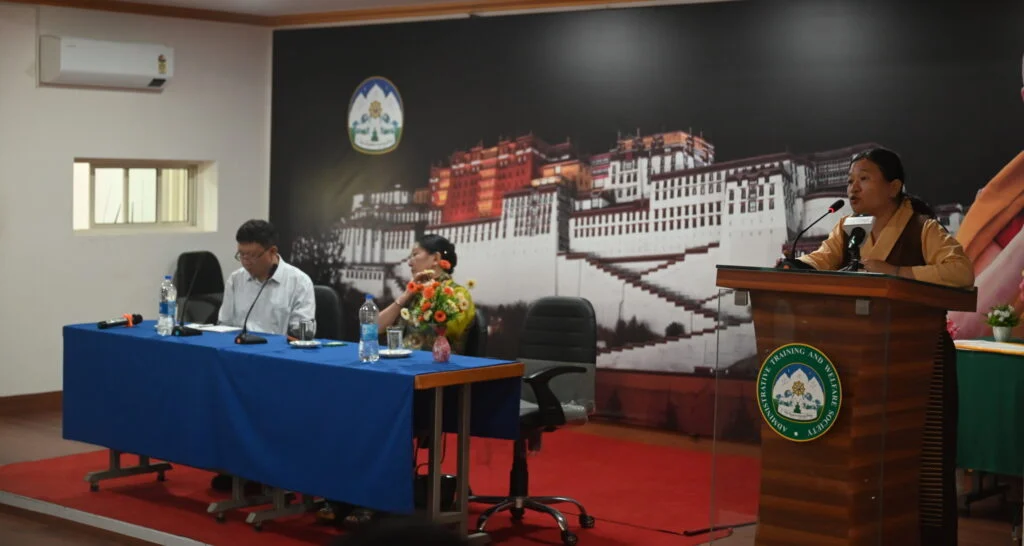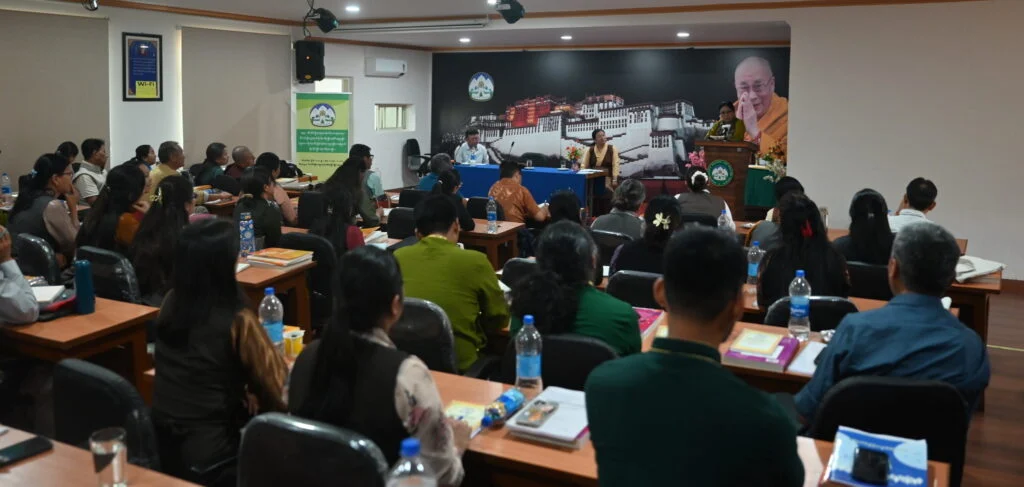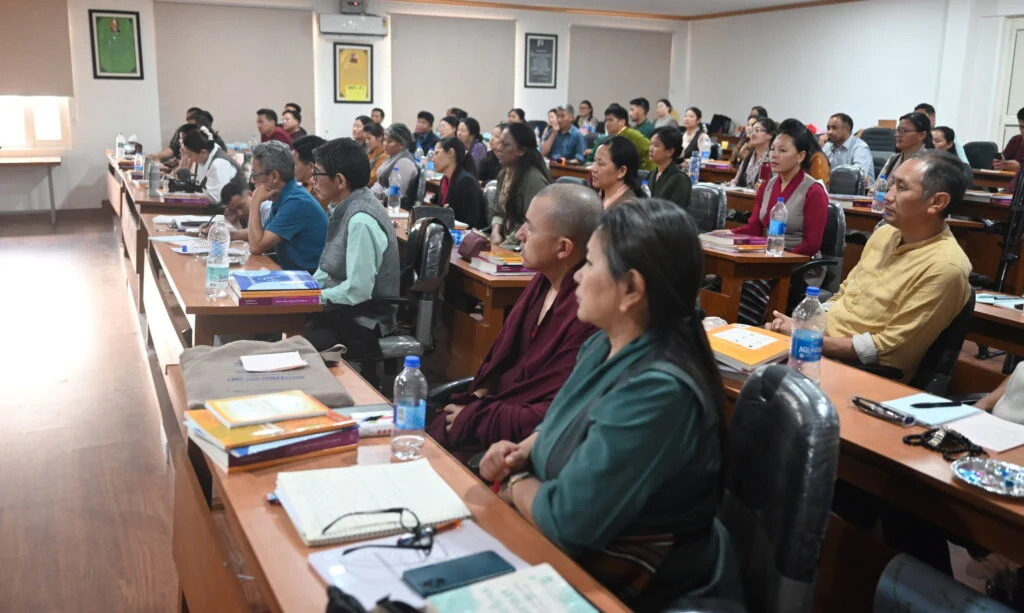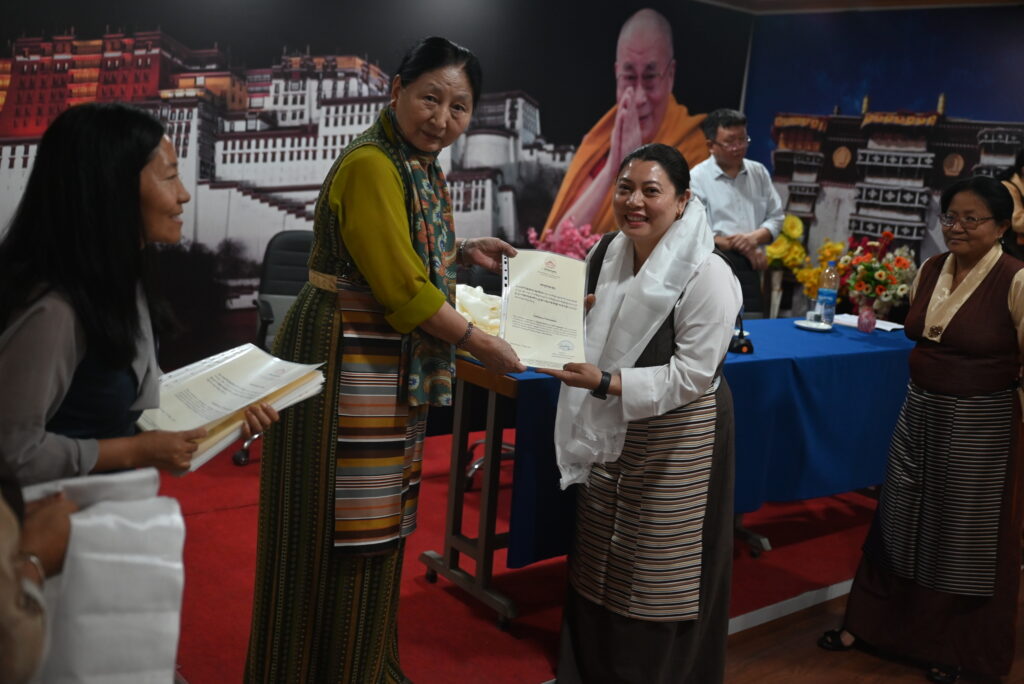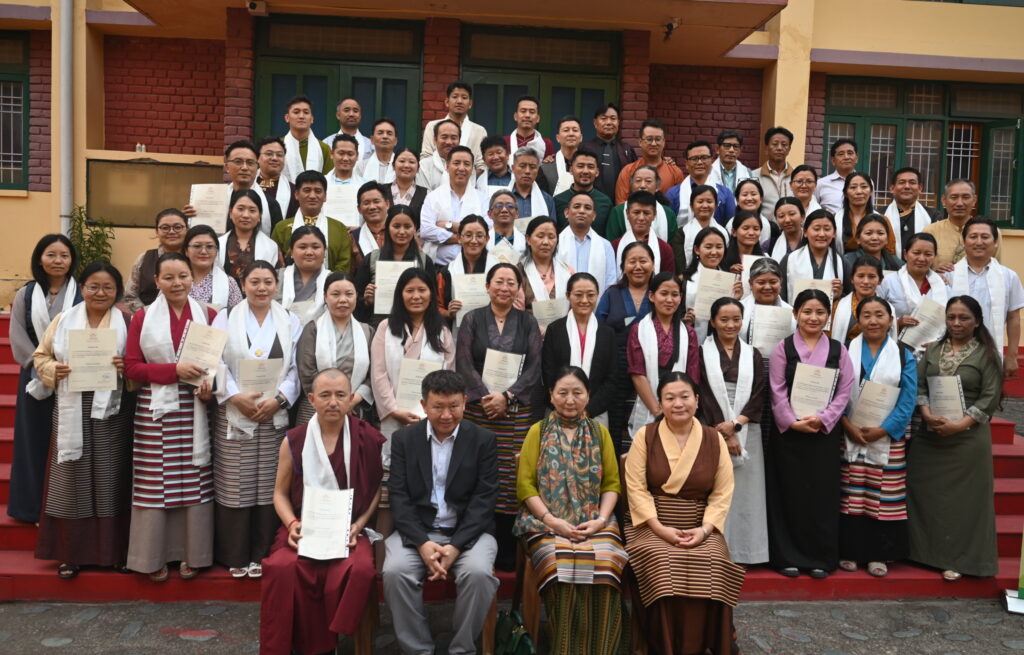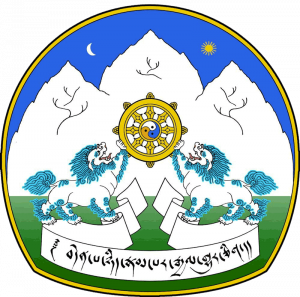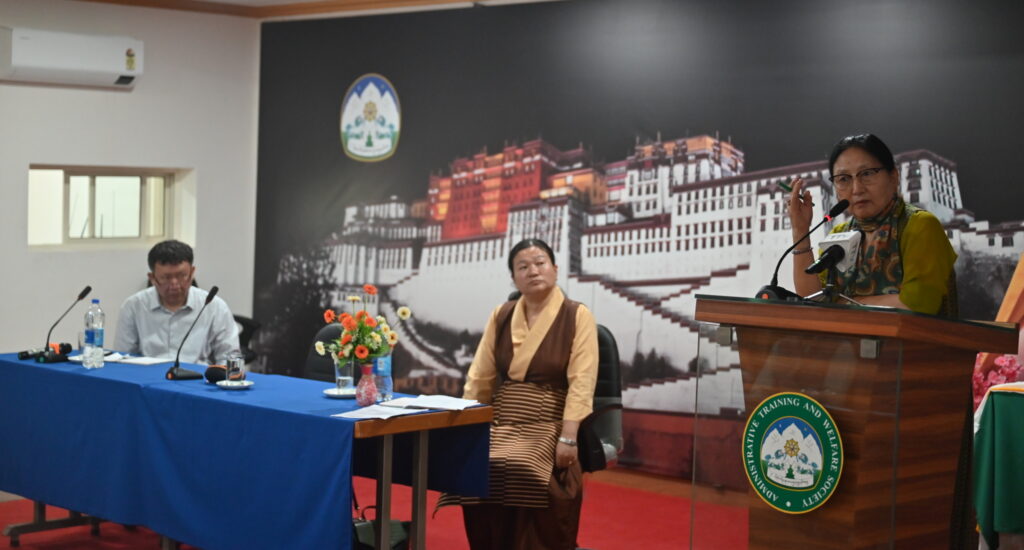
Dharamshala: Kalon (Minister) Tharlam Dolma Changra of the Department of Education, Central Tibetan Administration, as chief guest, addressed the closing ceremony of the seven-day workshop on SEE Learning (SEEL) and Cognitively Based Compassion Training (CBCT) for Tibetan school SEEL program facilitators.
In addition to the presence of the Department of Education Kalon, the concluding ceremony of the workshop was graced by the attendance of Tsondue Samphel, Assistant Director and program facilitator of SEE Learning from Emory University. The week-long workshop was held from 21 to 27 May 2025.
Other attendees include Additional Secretary Tenzin Pema from the Department of Education’s Education Council, with Section Officers Tsering Palzom and Karma Dekyi, who served as the workshop coordinator and 66 participants from over 30 Tibetan schools across India.
Four participants spoke on behalf of the group, sharing their reflections and the impact of the workshop on them. One student said, “His Holiness the Dalai Lama has always stressed the importance of SEE Learning for personal growth and a better society. I knew it was important, but this seven-day workshop deepened and strengthened that understanding. It has sparked a new interest in me to explore Buddhism more deeply and to apply its values in my daily life and at school.”
Following the sharing session, Kalon Tharlam Dolma Changra presented certificates to all participants and delivered her closing remarks. In her address, Education Kalon Tharlam Dolma Changra commended the dedication of the facilitators and underlined the long-term vision of integrating SEE Learning into the Tibetan education system. She reaffirmed that SEE Learning aligns deeply with Tibetan cultural and ethical values.
She urged educators to become agents of change in their schools, promoting compassion, not just as a subject to teach, but as a way of life. Kalon also expressed appreciation to the Emory Institute for its guidance to the participants.
She further emphasised the importance of integrating moral education alongside academic instruction, noting that nurturing compassionate and responsible individuals is equally crucial. “While academic excellence is important, it is the strength of character and ethical awareness that truly shapes a student’s contribution to society,” Kalon remarked. She also called on educators to lead by example, stating that teachers play a crucial role in fostering an environment where values such as integrity, empathy, and discipline are practised.
“As you return to your respective schools, I urge each of you to integrate the insights gained from this workshop into your daily practices,” said the Kalon. “Let this not be just a moment of learning, but a continued journey of deepening your understanding—especially in the context of Buddhist values—and translating that knowledge into meaningful action within your schools.”
She further remarked that the purpose of the workshop extends beyond merely acquiring knowledge of SEE Learning and CBCT methodologies. “This is a call to action, and you are encouraged to take proactive steps”, she stated.
In her conclusion, she expressed deep appreciation for the participants’ dedication to fostering compassion and ethical learning in schools. She emphasised the relevance of SEE Learning in preserving Tibetan values while preparing students to be emotionally resilient and socially responsible global citizens.
The ceremony concluded with a vote of thanks delivered by Section Officer Tsering Palzom and the SEE Learning coordinator from the Department of Education, acknowledging the efforts of the facilitators, organisers and the generous support of DANIDA through CICED.
The event marked the successful conclusion of a seven-day workshop.
